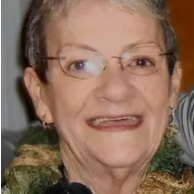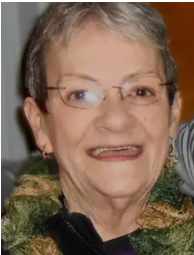February is Black History Month and throughout the month WBOC is sharing the stories of 10 men who were lynched on the Eastern Shore of Maryland during the 19th and 20th centuries.
In our multi-part series: Shameful Past: Lynchings on Delmarva, what follows is a profile of one of those men executed by mob justice.
William Andrews, aka "Cuba" was an African American laborer who was lynched after being tried and convicted of assault on Mrs. Benjamin T. Kelley in June of 1897.
After being arrested for the attack on Kelley in May, the Maryland State Archives say Andrews was taken to the Baltimore City jail to keep him safe prior to his trial date. The move was necessary to avoid lynch mobs.
"The noose had such a negative effect on people of color. Family members were lynched. Neighbors were lynched," Kirkland Hall, former UMES professor and local historian said. "The tactic was very effective."
The Maryland State Archives report that there were nearly 40 people lynched throughout the state of Maryland in the 19th and 20th centuries.
William Andrews was one of these men.
A month after the assault, on June 9, Andrews was in court on Main Street in Princess Anne, the archives say. Kelley delivered a tearful testimony in court, according to the archives. It says after her testimony, Andrews confessed to the assault without any defense, and it was determined that he was guilty.
Judge Henry Page ordered Andrews to be executed by hanging, and the crowd in the courthouse cheered as Andrew's sentence was read.

Somerset County Courthouse 1833 courtesy of courthousehistory.com
The Cambridge Democrat and News said in an article that was published at the time, "There was a faint cheer from the people crowded in the courthouse and the result of the speedy trial was soon communicated to the great gathering of people on the outside of the courthouse."
The archives say after the sentencing, a big crowd began forming toward the back of the courthouse and was growing with discontent.
Sensing this, "Judge Page decided to go outside the courthouse and reason with them. Judge Page made a stirring appeal to the infuriated men, told them it was their duty to respect the law," The Cambridge Democrat and News reported.

The Cambridge Democrat and News 1897
The paper says the officers tried to take Andrews from the courthouse and to the nearby Somerset County jail. The jail was only a few blocks from the courthouse. But the paper says the mob became so infuriated that they tore Andrews from the officer's arms within seconds.
The archives say that while he was still handcuffed, Andrews was beaten, punched and kicked until he was barely alive.
Deputies tried to protect Andrews, but to no avail, the archives say. The mob dragged him to a nearby walnut tree on the property of Z. James Doughtery to be lynched.
After his lynching, a jury of inquest was composed, but within an hour it was determined that he was lynched by people that weren't from Somerset County.

William Andrews Headline Cambride Democrat and News 1897
The Cambridge Democrat and News said in an article, "The treatment that the culprit received is of little importance, compared to the shock given civilized government. It is reported and upon the best authority, that the deed was not committed by people of Somerset County but by strangers."
But Hall says the newspaper's account is highly unlikely. He has conducted in-depth studies of lynchings that occurred on the Eastern Shore, including the case of William Andrews.
"There's an old saying that young people say these days, it says, 'Snitches get stitches,'" Hall said. "If anyone would have come forward during those times, or named anyone involved, if they had a business, it would probably go bankrupt and they would have probably run them out of town."
Despite the fact that no one was ever charged in Andrew's murder, Hall says the only way to honor the lives of these lynched men is to continue the conversation--whether they were guilty or not.
"So many people are scared to talk about it. But it happened, and we have to live with it," he said. "We have to understand why people feel the way they feel about people of color, and why we can't come together to make our community a better place to live."
Andrews was tried, convicted and lynched all in the same day.











